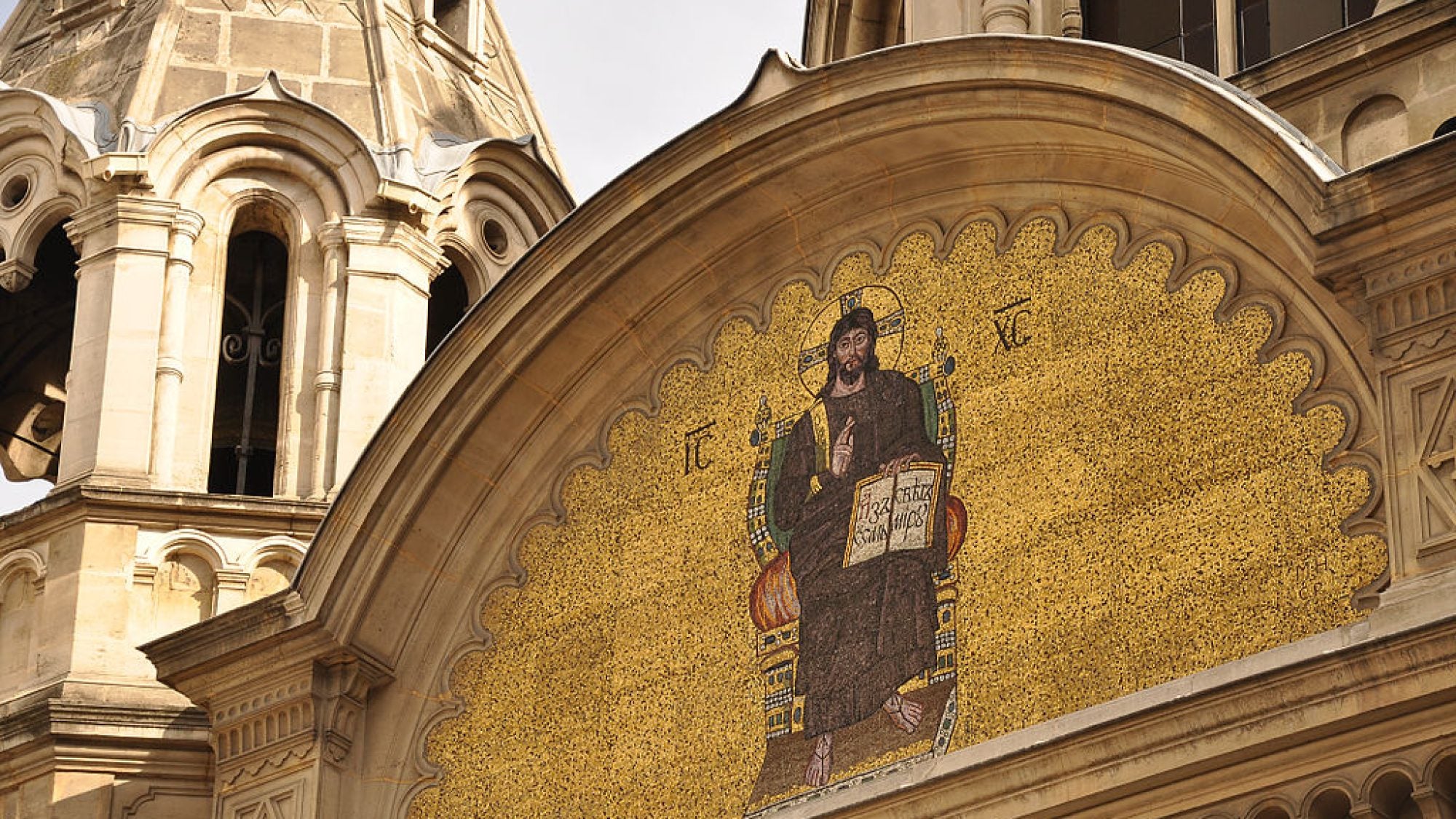
Title: A Russian Atlantis
This summer the Berkley Center’s Fellowship for Education and Social Justice took me to meet a special group of people who inhabit small corners of Paris and its outskirts. Apartments in the fifteenth and sixteenth arrondissements shelter them; the Alexander Nevsky Cathedral in the eighth arrondissement brilliantly displays them. Over five generations in exile, these people have created an Atlantis of imperial Russia.
Discovering and exploring the culture that White émigrés preserved after fleeing the Bolshevik revolution, I found that these former aristocrats, theologians, musicians, and financiers of Russia are the only political refugees of their kind. Escaping what they thought would be a short-lived spell of social persecution, the White émigrés assumed temporary shelter for themselves and their family members in France – they never fathomed permanent exile.
Once the Bolsheviks assumed full control of Russia, the émigrés found themselves thrust out of an empire that they had built with their own cultural, financial, and creative initiatives. Writers such as Ivan Bunin, philosophers like Sergei Bulgakov, and composers like Sergei Rachmaninoff became displaced and impoverished in France.
Accepting a more permanent exile meant building a community out of the only society they had been keeping abroad: the Russian Orthodox church. Young people became the most powerful force for continuing culture, and thus formed the youth groups ACER, Scouts, and Vitiaz.
In the 1920s the Young Men’s Christian Association (YMCA) and other social programs offered funds to enact revitalization projects. The youth group ACER, Action Chrétienne des Étudiants Russes – Mouvement de Jeunesse Orthodoxe lived a relatively quiet existence in St Petersburg and Moscow. After the revolution, ACER grew into communities in Paris, Belgrade, Prague, Berlin.
Today, this group embraces the émigré story of exile as an apostolic mission to the West. Beginning in elementary school and continuing through their twenties, members speak only French and focus on religion – not nationality – as their connection to Russia.
Another group, the Scouts, have warmed up to the motherland. Members are encouraged to speak Russian and learn Russian history. Many with whom I spoke equivocate whether they feel more Russian or French.
Vitiaz, the third Russian Orthodox group, stresses their connection to Russia as a fundamental part of their identity. Vitiaz runs summer camps not only in France, but also in Russia, and offers Orthodox students from Russia the cultural exchange opportunities.
Over the past five generations in exile, the summer camps of ACER, Scouts, and Vitiaz have amounted to a contained social experiment. Children attend annually beginning in elementary school through high school and university. This time gives couples the chance to form and intermarry – the caveat being that the three circles rarely intermingle. The result after five generations is three émigré subgroups within a larger Russian subculture in France.
The White emigration now faces the challenge of reconciling their varying levels of closeness to Russia itself with their unanimous passion for the Orthodox religion. Addressing this issue could spell the life or death of this imperial Russian Atlantis.
Russo-French marriages, cultural and linguistic integration are extinguishing the imperial culture fast. I met only a handful of White Russian descendants my age who spoke Russian. Imperial culture does live on through the manners, discussions, and songs of the grandparents and parents who transplanted firsthand their imperial culture to Europe. Religion has kept their spirits alive, but now with Orthodoxy transcending geographic and linguistic barriers, White émigrés risk the loss of its accompanying Russian culture.
The looming question is whether preserving the relics of imperial Russia is still worth it. This question especially taunted me as a group of ACER camp counselors and I sat around a campfire in Bussey-en-Othe, a small town outside of Paris. They held the Spiridon, a white flappy songbook that contains lyrics that their ancestors wrote on the while fleeing Russia.
The songs weep for their native earth and the great expanse of Russian sky. The head counselor sat across his lawn chair, playing guitar in typically emotional Russian style. The veterans of the group steadied the beat, the younger counselors scrambled to keep up. Few understood the Russians words they sang, but we all felt the undeniable spirit of pride and nostalgia . Their faith has preserved this spark of life to an almost extinguished era in Russian history and only their continued effort can help it stay alive.
Masha Goncharova is a Junior at Georgetown University, majoring in English and Art History. She also serves as the Books Section Editor for the Georgetown Journal of International Affairs.
Image Credit: Moonik, Wikimedia Commons